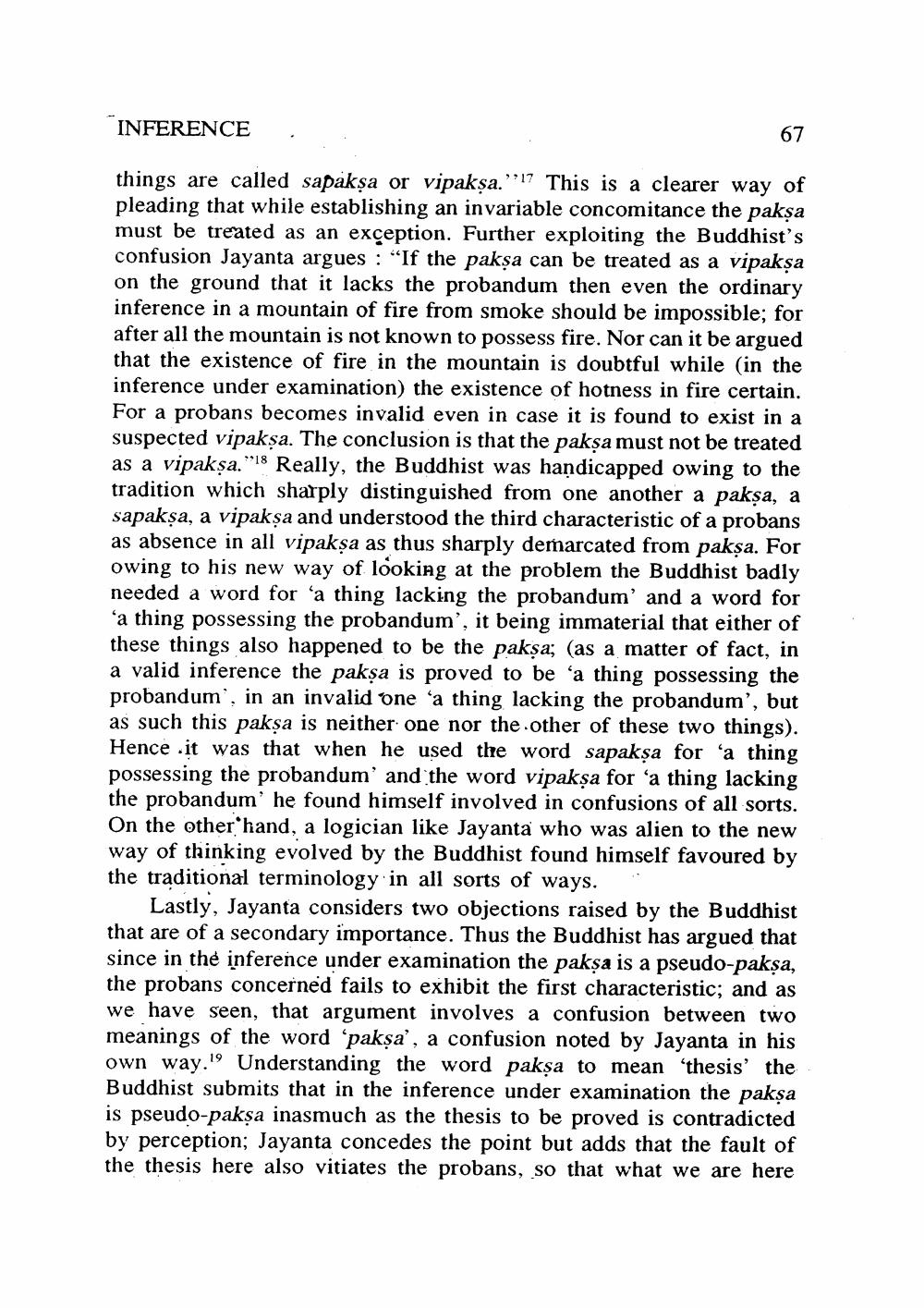________________
INFERENCE
:
67
things are called sapaksa or vipaksa."?!? This is a clearer way of pleading that while establishing an invariable concomitance the paksa must be treated as an exception. Further exploiting the Buddhist's confusion Jayanta argues : “If the pakşa can be treated as a vipaksa on the ground that it lacks the probandum then even the ordinary inference in a mountain of fire from smoke should be impossible; for after all the mountain is not known to possess fire. Nor can it be argued that the existence of fire in the mountain is doubtful while (in the inference under examination) the existence of hotness in fire certain. For a probans becomes in valid even in case it is found to exist in a suspected vipaksa. The conclusion is that the paksa must not be treated as a vipaksa."18 Really, the Buddhist was handicapped owing to the tradition which sharply distinguished from one another a pakşa, a sapakşa, a vipaksa and understood the third characteristic of a probans as absence in all vipaksa as thus sharply demarcated from paksa. For owing to his new way of looking at the problem the Buddhist badly needed a word for 'a thing lacking the probandum' and a word for 'a thing possessing the probandum', it being immaterial that either of these things also happened to be the paksa; (as a matter of fact, in a valid inference the paksa is proved to be 'a thing possessing the probandum , in an invalid one 'a thing lacking the probandum', but as such this pakṣa is neither one nor the other of these two things). Hence it was that when he used the word sapakșa for 'a thing possessing the probandum' and the word vipaksa for 'a thing lacking the probandum' he found himself involved in confusions of all sorts. On the other hand, a logician like Jayanta who was alien to the new way of thinking evolved by the Buddhist found himself favoured by the traditional terminology in all sorts of ways
Lastly, Jayanta considers two objections raised by the Buddhist that are of a secondary importance. Thus the Buddhist has argued that since in the inference under examination the paksa is a pseudo-paksa, the probans concerned fails to exhibit the first characteristic; and as we have seen, that argument involves a confusion between two meanings of the word 'pakşa', a confusion noted by Jayanta in his own way." Understanding the word paksa to mean 'thesis' the Buddhist submits that in the inference under examination the paksa is pseudo-paksa inasmuch as the thesis to be proved is contradicted by perception; Jayanta concedes the point but adds that the fault of the thesis here also vitiates the probans, so that what we are here




